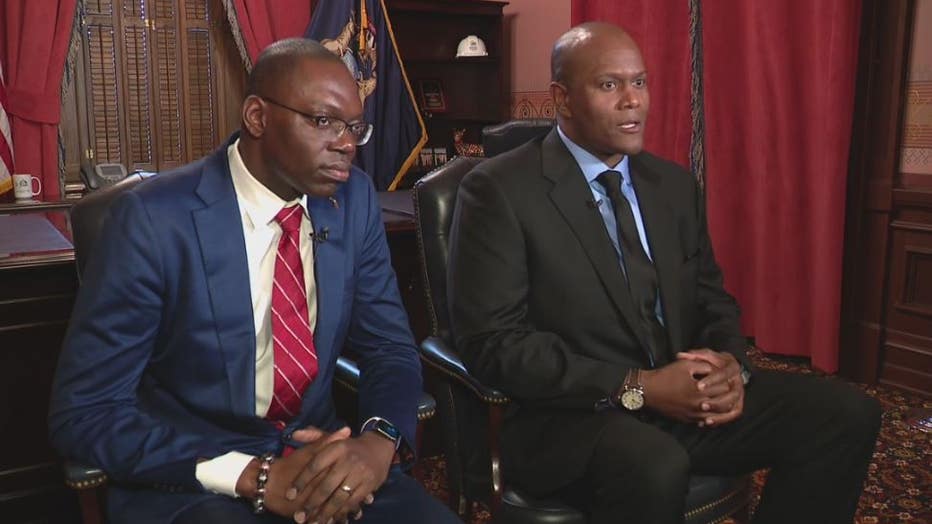Michigan's Right to Work law could be overturned by state's Democrat leadership
LANSING, Mich. (FOX 2) - Michigan's Right to Work law has been controversial ever since it went into effect 10 years ago. Some say it is about freedom for workers, others counter that it is simply about breaking up unions.
In this legislative session, it could come to an end - according to a pledge by the newly minted Democratic majority controlling both the state House and Senate to do away with Right to Work law.
Former Michigan Lt. Gov. Brian Calley is not mincing words in his opposition.
"I think it would be a really big mistake if the economy is important to the future of our state - which obviously it is," Calley said.
It's something Calley was heavily involved in passing under former Gov. Rick Snyder more than a decade ago. He is now president of the Small Business Association of Michigan.
"The repeal of Right to Work would send a message across the country that Michigan is going backward to the types of policies that put us at the bottom of pretty much every economic index you can think of," he said.
Labor unions like the UAW have long viewed Right to Work as a hostile union busting measure, dating back to 2013. That year Michigan officially became the 24th state to ban unions and other labor groups from requiring public and private workers to pay dues as a condition of getting jobs.
The law allows workers who opt out of unions to get the same benefits as fully unionized members.
"We understand the detrimental impacts that Right to Work and other legislation has had, that have cut workers' knees out," said State Rep. Joe Tate (D-Detroit).
New House Speaker Tate told FOX 2 in an exclusive sit down along with the current Lt Gov. Garlin Gilchrist, that a Right To Work repeal is part of a better way to support workers while growing the economy.
"We have to have talent in Michigan," Tate said. "That’s been one of just the biggest factors for us in terms of how do we grow our state, how do we ensure that our communities are stable.
"A big part of that is talent and ensuring that workers are here and that they’re being valued."
Right To Work is perhaps one of the biggest policy fights we'll see in Lansing in 2023.
"I think it is important that somebody has to stand up for an individual worker’s right to decide who they want to affiliate with," Calley said.

Lt. Gov. Garlin Gilchrist, left, and House Speaker Joe Tate (D-Detroit).

